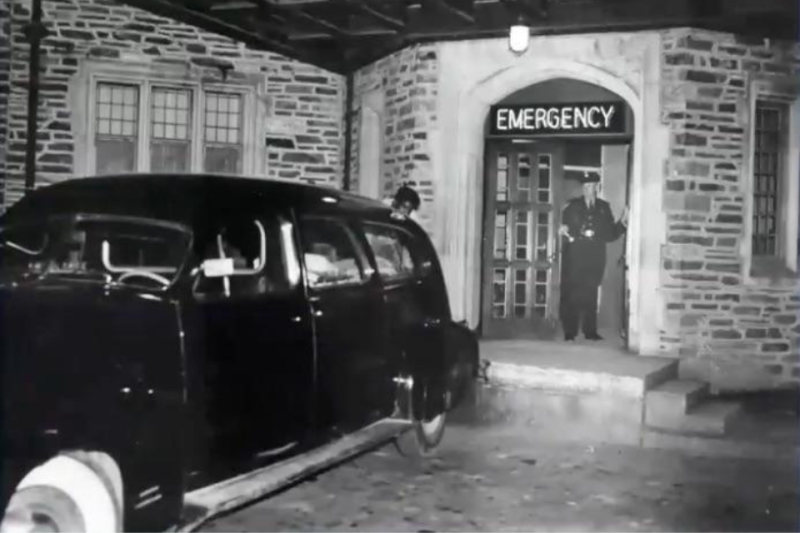
Damon Tweedy, MD, professor of psychiatry and behavioral sciences, and Jeffrey Baker, MD, PhD, professor of pediatrics and history, on November 15 delivered the Trent Humanities in Medicine Lecture about a largely forgotten incident at Duke that drew national scrutiny and attention to the issue of segregated medical care in the 1950s.
In “Remembering Maltheus Avery: Race, Medicine, and Duke Hospital in the Jim Crow Era,” Tweedy and Baker shared their research on the Avery case and discussed why it mattered in its day and why it remains important today.

On December 1, 1950, Maltheus Avery, a 24-year-old Army veteran and North Carolina A&T student, was severely injured in a car wreck near Mebane. He was taken by ambulance to the only hospital in the region with neurosurgical capabilities, Duke Hospital. There, he was briefly examined and given “supportive measures,” deemed not to be a candidate for surgery, and refused admission because there were no beds available in the hospital’s ward for Black patients.
Avery was transferred to Lincoln Hospital, the local hospital for Black patients, where he died in the emergency room shortly after arrival.
His story ignited national outrage in the Black press and inspired an early civil rights campaign to end hospital segregation.
Tweedy is the author of Black Man in a White Coat: A Doctor’s Reflections on Race and Medicine. Baker, director of the Trent Center for Bioethics, Humanities & History of Medicine, is a pediatrician and medical historian whose recent research centers on the history of racism in medical centers and their communities.
This article was originally published on the School of Medicine blog.